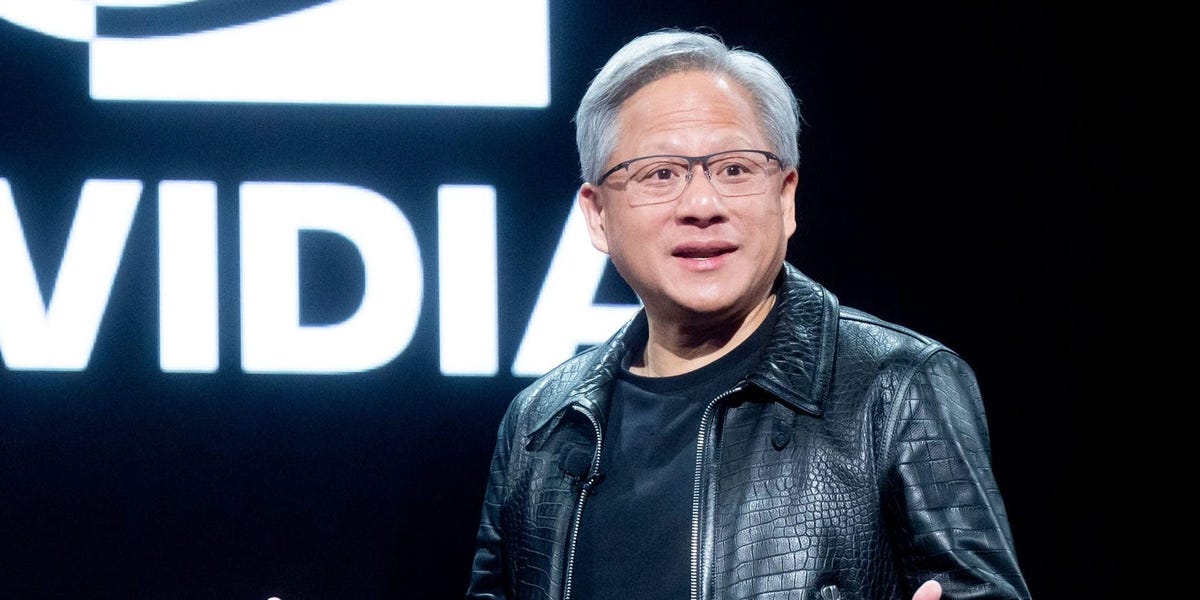- Nvidia CEO Jensen Huang is kicking off the “Woodstock of AI” in a keynote speech Monday.
- You can watch his much-anticipated opening speech at 4 p.m. ET for free online.
- Analysts predict Nvidia will reveal new graphics processing chips that could transform the AI industry.
Nvidia is kicking of its massive AI event at a California sports arena on Monday. The event has been dubbed the “Woodstock of AI” and Nvidia CEO Jensen Huang is its rockstar headliner.
The highly anticipated event is Nvidia’s latest installment of its GPU Technology Conference (GTC), the first of which happened almost 15 years ago in San Jose’s Fairmont Hotel.
The event — hosted for the first time in person since 2019, according to The Wall Street Journal — has since expanded to fill the size of a sports arena.
As expected but still crazy to see how much attention Nvidia GTC this year got. Jensen Huang’s keynote starts at 1pm and this is the line for media&analysts entrance as of 10:50am🫡 pic.twitter.com/oVQjigckeM
— Yifan Yu (@YifanYuNews) March 18, 2024
Huang will give the keynote address at the multi-day event at San Jose’s SAP Center, which could see as many as 11,000 people in attendance in person, the Journal reported.
Though you need to pay a registration fee to watch many of the week’s panels virtually, Huang’s speech at 4 p.m. ET is available for anyone to watch on the conference’s website here.
The hype surrounding Huang’s speech, and what he will reveal about the future of AI technology, is enormous.
Wedbush analyst Matt Bryson wrote in a research note that he expects Nvidia to unveil a new generation of graphics processing chips (GPUs) called B100s that could revolutionize the AI industry.
The GPUs that Nvidia manufactures have become the backbone of the generative AI gold rush, powering the technology that makes bots like ChatGPT possible.
The unveiling of a more powerful GPU could help curb the chip shortage that has been plaguing the tech industry. Meta’s Mark Zuckerberg — who has amassed a stockpile of GPUs despite the shortage — would likely clammer for the faster units, as would OpenAI’s Sam Altman, who has thrown gobs of money at the AI chip shortage.





